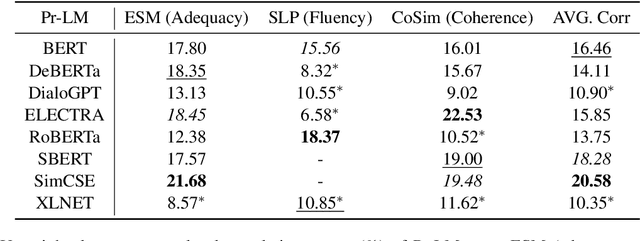Investigating the Impact of Pre-trained Language Models on Dialog Evaluation
Paper and Code
Oct 05, 2021



Recently, there is a surge of interest in applying pre-trained language models (Pr-LM) in automatic open-domain dialog evaluation. Pr-LMs offer a promising direction for addressing the multi-domain evaluation challenge. Yet, the impact of different Pr-LMs on the performance of automatic metrics is not well-understood. This paper examines 8 different Pr-LMs and studies their impact on three typical automatic dialog evaluation metrics across three different dialog evaluation benchmarks. Specifically, we analyze how the choice of Pr-LMs affects the performance of automatic metrics. Extensive correlation analyses on each of the metrics are performed to assess the effects of different Pr-LMs along various axes, including pre-training objectives, dialog evaluation criteria, model size, and cross-dataset robustness. This study serves as the first comprehensive assessment of the effects of different Pr-LMs on automatic dialog evaluation.
 Add to Chrome
Add to Chrome Add to Firefox
Add to Firefox Add to Edge
Add to Edge